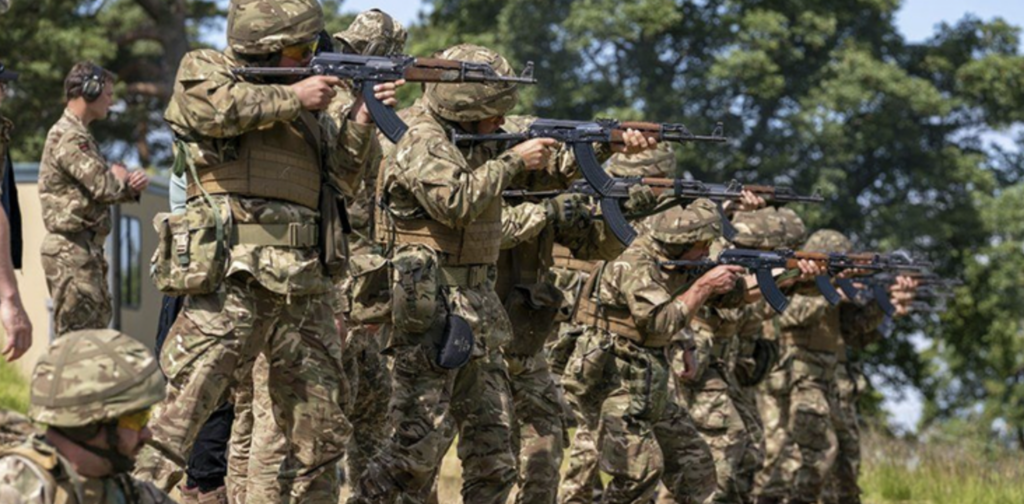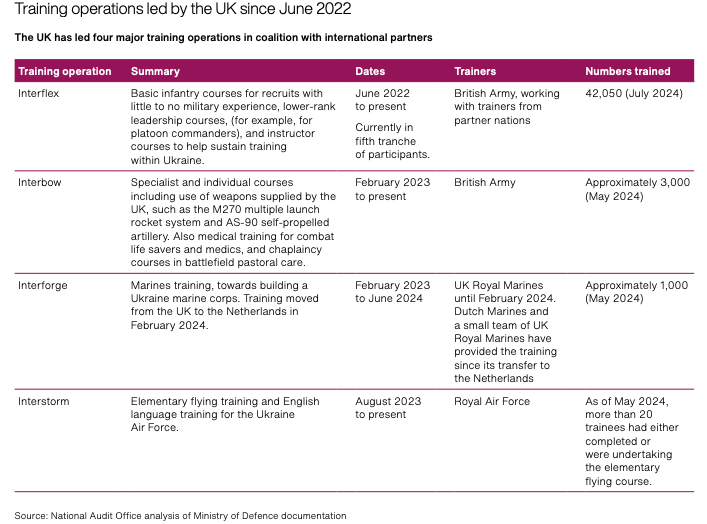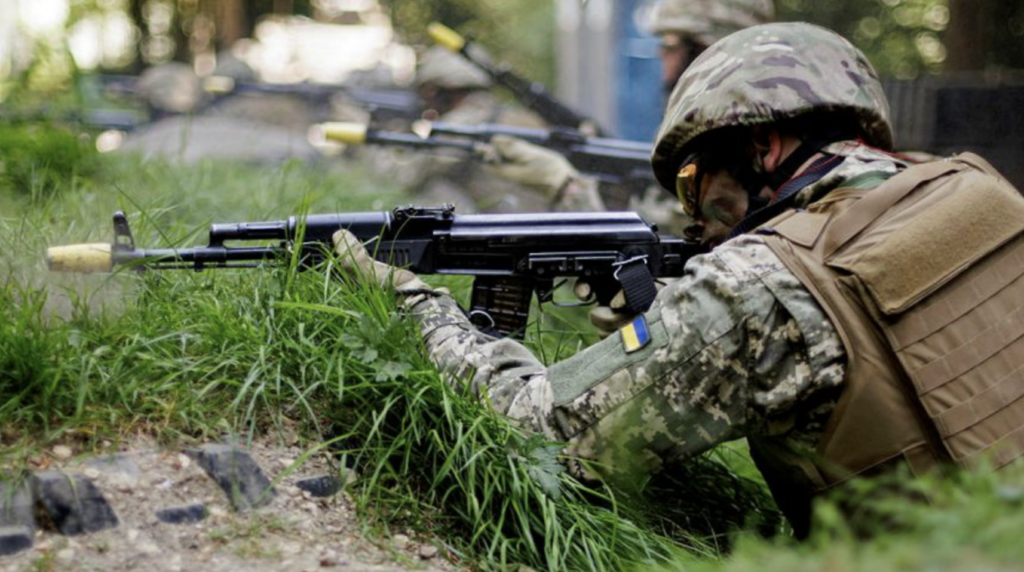Interflex Successful But Could Be Stunting the British Army’s Capability
Since the Russian invasion of Ukraine in February 2022, the United Kingdom has trained more than 45,000 Ukrainian troops as part of the ongoing training operation Interflex. The data comes in the wake of news from the British Ministry of Defence that the operation would be extended through to 2025, Interflex had been marked to conclude at the end of this year. Its extension beyond 2024 was announced on September 6 by the British Defense Secretary John Healy at a meeting of the Ukraine Defense Contact Group (UDCG) which was held at the US Airforce base at Ramstien, Germany. The meeting was attended by representatives from 50 nations as well as the Ukrainian President Volodymyr Zelensky. Healy commented on the extension in a recent MOD press release:
“The extension of this training, which is vital for Ukraine’s defence, is another example of the UK’s ironclad commitment to Ukraine…Operation Interflex has provided the brave men and women of Ukraine the vital skills they need to defend their nation in the face of Putin’s illegal invasion.”

Ukrainian troops and military personnel are given a minimum of 5 weeks training at MOD sites up and down the length of the United Kingdom by British personnel alongside a number of other NATO member nations including Denmark, Finland and the Netherlands. Interflex was born out of the earlier operation Orbital which ran from February 2015 to February 2022, that oversaw the military training of 22,000 Ukrainians during the course of the operation. Interflex also provides not only infantry trainingbut also training on battlefield medicine, support for Ukrainian military chaplains and RAF instructors for Ukrainian pilots. Healy reaffirmed the UK’s commitment to aiding Ukraine after the UDCG meeting earlier this month commenting, “as I told our allies and partners today in Germany, the UK will continue to step up our support. We will stand with Ukraine for as long as it takes.”
The MOD also reasserted its stance on the training up of Ukrainian personnel in its own September 6 press release:
“This latest announcement will continue to support the development of Ukraine’s Armed Forces. From learning basic combat tactics, to being trained how to operate British Challenger II tanks and flying F16s, the UK is committed to teaching Ukrainian recruits vital skills that are making a difference on the battlefield.”
This commitment of British support for Ukraines ongoing war with Russia was also bolstered earlier this month with the announcement that £300 million worth of artillery shells would start to be delivered within the year after a meeting between Healy and his Ukrainian counterpart Rustem Umerov.
On September 11, 2024 a report was published by the British National Audit Office titled ‘Investigation into military support for Ukraine’. The report details the ongoing military assistance for Ukraine since the start of the full-scale war in 2022, focusing on the scale, pace and monetary cost of the UK’s response to the war. The report has highlighted issues that have been felt by the British Army during the course of Interflex. Most notably the constraint felt by the Army’s current capability to train its own personnel, in the wake of the amount of pressure put upon the MOD and British military training sites which are being used as part of Interflex. Part 3 of the report titled ‘Training Ukrainian Personnel’ states that Interflex is currently taking up more than 75% of the Army’s training estate. Subsection 3.17 further details the toll being taken on Army training by the operation:
“British Army units which bid for time at the training sites in 2023 had their bids rejected at eight times the rate in 2019 (a ‘normal’ year for training site usage, preceding both the Ukraine conflict and the COVID-19 pandemic), because the sites were not available. The MoD does not monitor whether units are able to rebook their training sessions if their initial bids to use training sites are rejected. The MoD has acknowledged that Interflex will constrain the British army’s capacity to train its own soldiers. The Army will continue to deliver Interflex through 2024, working with international partners and the Army Reserve to mitigate the impact of supporting Ukraine on UK forces.”
To help take the pressure off of Army training sites and free them up for domestic military use a number of steps have been taken. Operation Interforge saw the shifting of the training of Ukrainian Marines to the Netherlands in February 2024, as well as Army Reserves being called upon along with international partners to help ease the impact of Interflex.

On September 15, the British Armed Forces Minister Luke Pollard spoke on gaps within the war materiel stockpile available the the Armed Forces in the wake of the war in Ukraine at an MOD briefing remarking that the upcoming UK Strategic Defence Review, announced by the British Government in July 2024, will aim to “make sure we are backfilling our stockpiles with the equipment and the ammunition that is needed.”
The review will evaluate the current state of the UK’s Armed Forces, the threats facing it and the means needed to address them. It is expected to be completed in 2025. Despite the drawbacks faced by the British Military from the war in Ukraine, the training given by Operation Interflex has been well received by the Ukrainians that have taken part in it.
Major General Oleskii Taran, who is the head of the Main Department of Doctrine and Training of the General Staff of the Armed Forces of Ukraine, gave high praise to the operation in 2023:
‘We notice the greater fighting capacity of the servicemen and women of the Armed Forces of Ukraine who successfully completed the Interflex training course…(we) highly appreciate and are grateful to the United Kingdom, its nation and government for the opportunity to train Ukrainian personnel at British military bases as part of the multinational training Operation Interflex.’
While Interflex has placed considerable strain on the UK’s defence estates and British aid to Ukraine has seen a drawdown on UK stocks, the value of the training to Ukraine’s armed forces appears to justify the effort and expenditure. The support reaffirms the UK’s close relations with Ukraine, which were recently codified in a new defence pact signed in April.

